International Community Development Profile: Neema Kikoti Family in Tanzania
In this series, families in the Reaching Children’s Potential (RCP) Demonstration Program in Tanzania explain how their participation improves their lives. Global Volunteers’ RCP Program engages short-term volunteers to help parents deliver essential services improving health, eradicating hunger, and enhancing cognition – with the goal of eliminating child stunting in the Ukwega Ward and throughout Tanzania. Through RCP, families obtain the nutrition, health care, knowledge, technology, and encouragement needed to combat stunting, and to ensure their children can realize their full potential. The RCP Program is a child-focused, parent-driven, family-centered, and community-led comprehensive effort. It begins with pregnancy, and continues through the 18th birthday, with a focus on the first 1,000 days of life. Read Neema Kikoti’s interview about the RCP Program here.
Neema, we’d love to hear a bit about where you grew up and what your daily routine is like.
Both my husband and I were born and raised here in Ipalamwa and our education level is standard seven. We support each other in everything as a family. Like many families in our village, we farm, mainly beans and corn. We also grow bananas, yams, potatoes, cassava, and avocados for use in our home.
I always wake up at five in the morning and do some domestic activities here at home. Before leaving, I always make sure that I cook lunch for my youngest, Moreen. Then I go to the field to work. We eat three meals every day. When I get time to relax, I usually sleep. I do not spend much time talking to friends because everyone is always very busy. I fetch water from the nearest well, which is just about a five-minute walk from here, so water is not challenging for me.
What can you tell us about your three children and their personalities?
Vaileth likes weaving yarn in her free time and Stanley likes playing. He also likes making rope for hanging clothes by using the plastic water bottle caps. He always picks them up wherever he finds them and once he has enough, he twists them and combines them to make a rope. Moreen is still young. She likes to play around with her friends and do what others are doing. We chose our children’s names because we loved the names. Their performance at school is good and they still improve day by day. I want them to be successful people in the future in whatever they would like to become. My husband and I will be supportive to make sure they have a good life in the future.
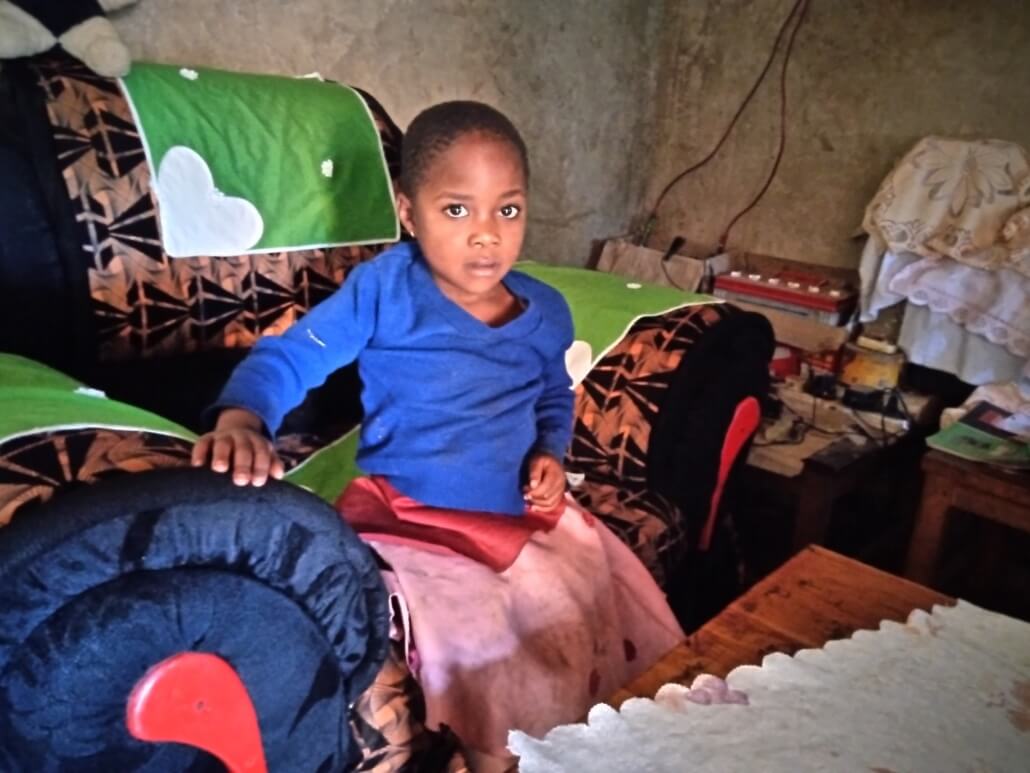
I understand both Vaileth and Stanley eat Rise Against Hunger meals twice a day at school. Have you noticed any changes in them since they started eating these meals?
Yes, since they started eating the meals at school, I do not have to prepare the food in the afternoon after they come back from school and they are always active all the time. I have seen them becoming very healthy as the days go by.
Before the Rise Against Hunger meals were available through the RCP Program, I received fortified porridge, which was very healthy and helpful, too. My children and I used to eat it once or twice per day. My children liked the porridge so much because it stays in the stomach for a few hours. Moreen’s weight used to increase every month and she was healthy. It was also the same for me and I was producing enough breast milk at all times to feed Moreen.
“Since they started eating the meals at school, I do not have to prepare the food in the afternoon after they come back from school and they are always active all the time. I have seen them becoming very healthy as the days go by.”
– Neema Kikoti, RCP mom
How did you implement using the hand-washing station with your family, Neema?
I felt very good when I first learned about hand washing and the hand-washing stations. Soon after the workshop, I got home and shared everything I had learned with my husband and my children. They were very receptive to this matter. So after getting the hand-washing station, we all started to practice effective hand washing as much as we could, especially in important times like before and after eating, after using the bathroom, after doing farm and animal activities, and while cooking. I used to remind my children to wash their hands because children can’t always start doing something new very easily. Now they are used to washing their hands using the hand-washing station without reminders. I believe that washing our hands using the hand-washing station is very good because our health as a family is now stable. Before this, we used to suffer from the stomach flu many times, especially the children, but now they are all healthy. Also, we used to wash our hands but not efficiently since everyone was just using the same bowl. I guess we used to contaminate everything else before washing our hands when we would take water from the big container, but with the hand-washing station, you do not have to touch anything other than the soap. Hand-washing stations are the best technology.
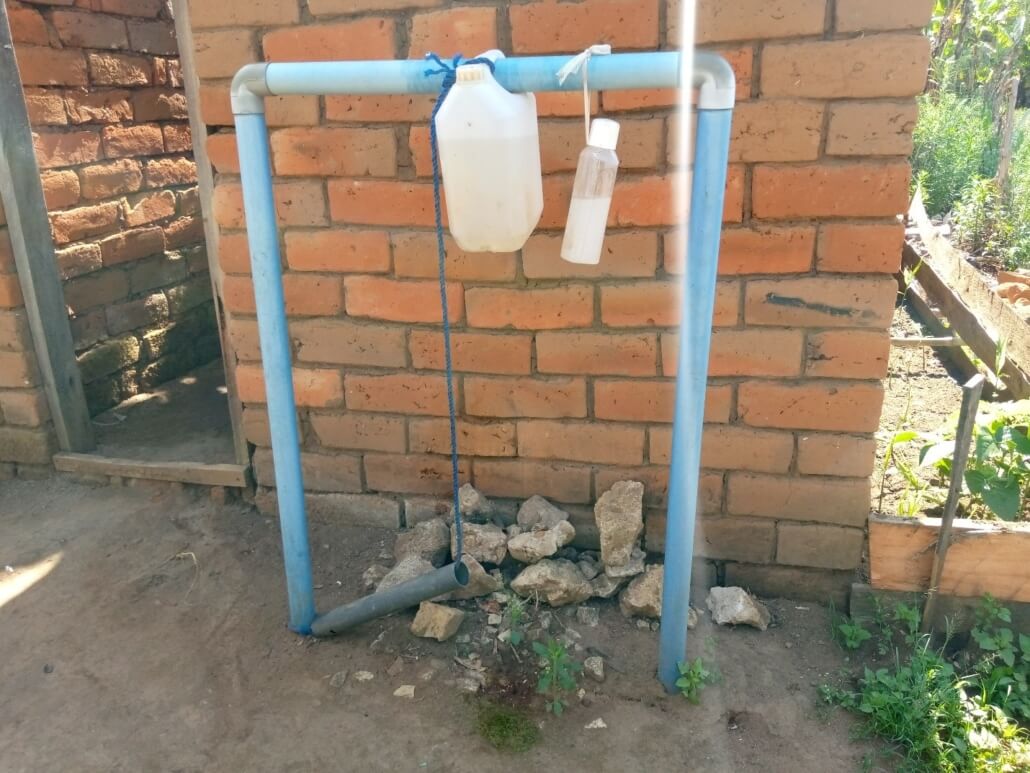
“I believe that washing our hands using the hand-washing station is very good because our health as a family is now stable. Before this, we used to suffer from the stomach flu many times, especially the children, but now they are all healthy. Hand-washing stations are the best technology.”
– Neema Kikoti, RCP mom
What are the personal changes you’ve made in your life since joining RCP that have resulted in better health for you and your children?
I have changed in the way of washing hands because I didn’t know about the hand-washing station before. But now I know and practice washing hands using the hand-washing station and I also now boil drinking water, which I didn’t use to do before the program. I make sure that there is always food available for my children and I cook a variety of foods for them, as much as I can. I started making corn porridge for my children and continue to feed them a variety of foods from what I can afford like ugali, beans, vegetables, sardines, yams, cassava, potatoes, meat (if it is available and affordable), avocados, and bananas. I always clean the kitchen, bedrooms, and all around our house and I teach my older children to do all these activities. Also, I sometimes take time to help them with what they have learned from school, with the things that I’m able to teach them.
If you have been using the clinic services in Ipalamwa, how are they different from medical services available before the clinic opened?
The services are great because there are professionals and equipment for diagnosis. As a result, appropriate medicine is given to the patient. This is not the case at other dispensaries since they just guess by giving out medicines because they do not have equipment.
What are your family’s biggest challenges? How do you try to address them?
Weather is the biggest challenge for me when I cultivate beans because when there is too much rain, we aren’t usually able to harvest crops. That happened last year. But because we cultivated corn as well, we sold the corn that we had harvested. So we usually make sure that we cultivate beans and another crop in order to make up for the beans if we won’t get much of them.
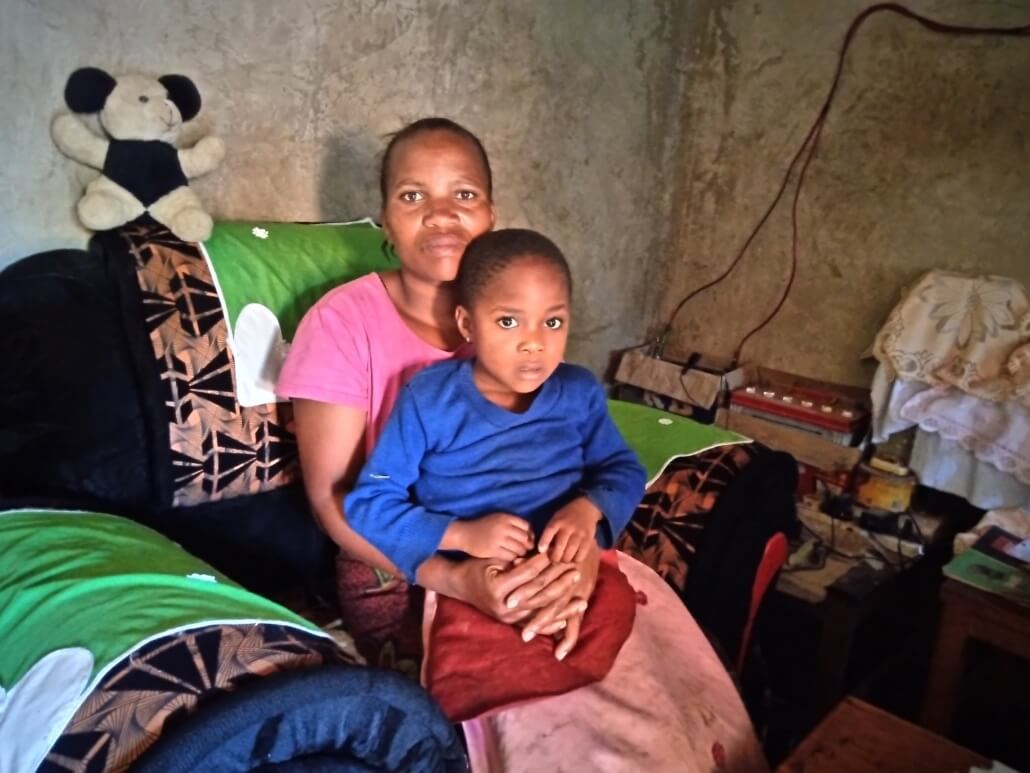
What are your visions for the future and what values from your ancestors and cultures are you trying to maintain?
Before marriage, a dowry needs to be paid to the bride’s family and on that day, everyone is invited. In the case of celebrations or funerals, all of us in the village need to go to the respective home to help with activities like cooking and fetching water. Everyone has to contribute with something like corn, beans, money, firewood, or really anything.
Do you celebrate birthdays?
Yes, I always cook normal rice or spiced rice and buy drinks for them so that they can enjoy them. Rice is their favorite food and that is why I usually cook it on their birthdays.
What do you most appreciate about your village? What are you most proud of in your family?
I appreciate Ipalamwa because first, it is my home place and second, many things are found on the farm and are fresh. They grow here and you don’t need to buy them. I feel happy when I see my children because they are always happy and healthy. In few years to come, I have a plan to build another house to accommodate my family better.
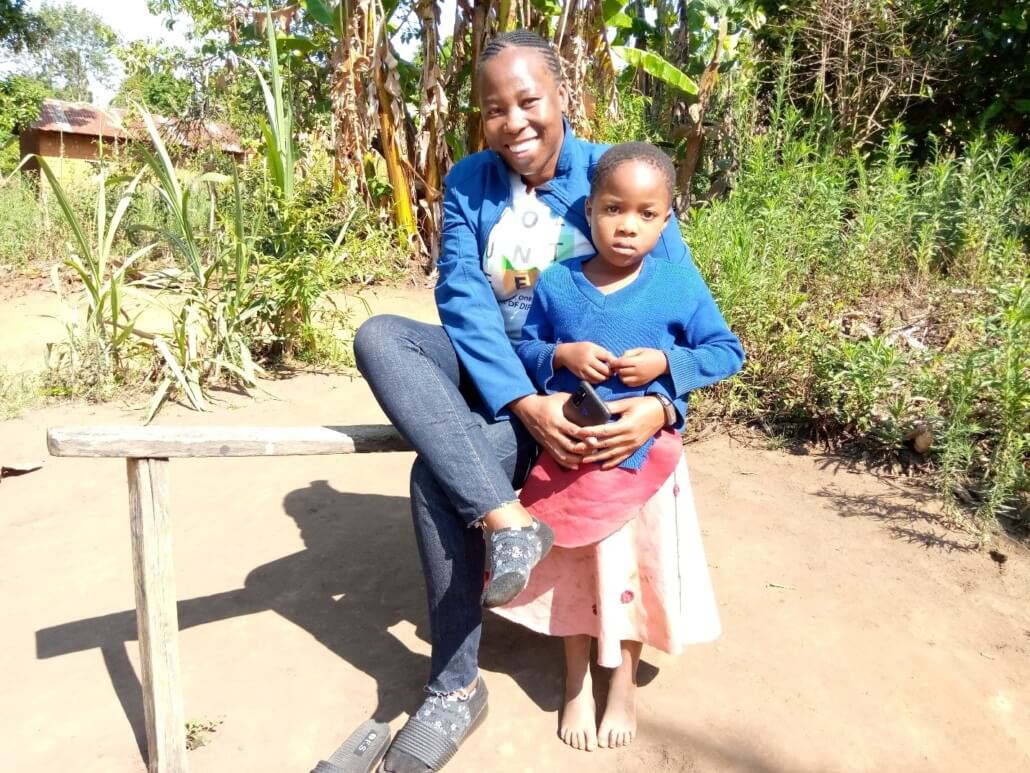

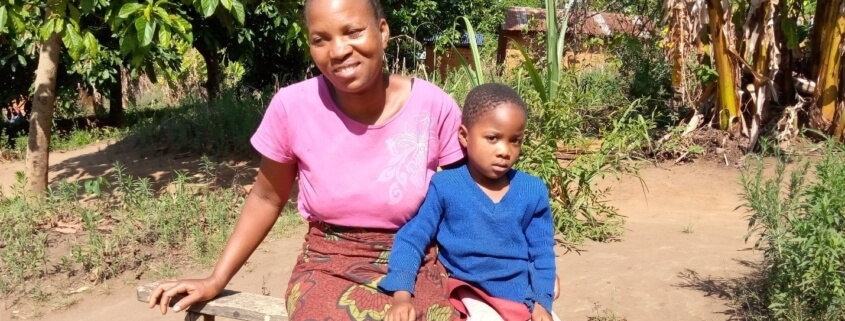
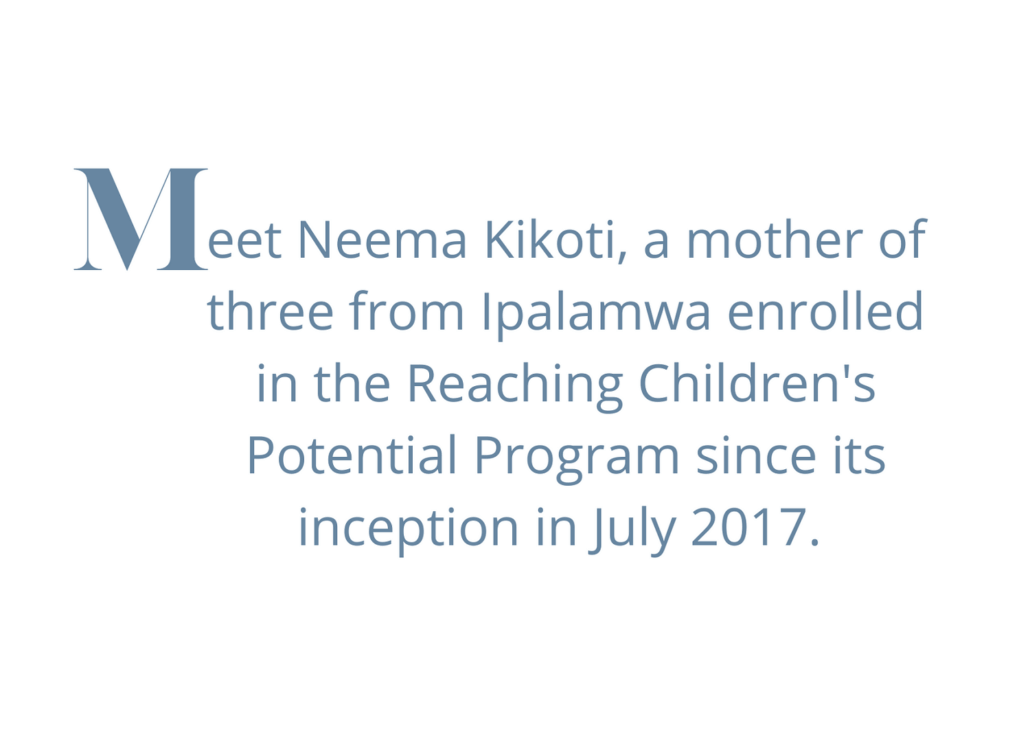
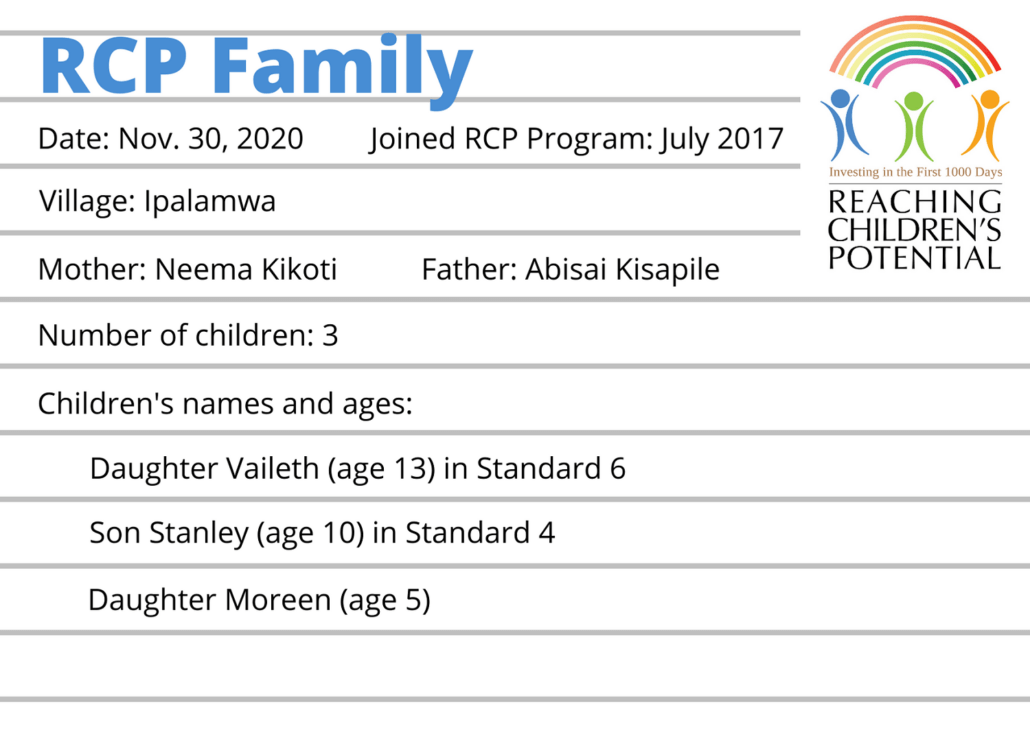


Leave a Reply
Want to join the discussion?Feel free to contribute!